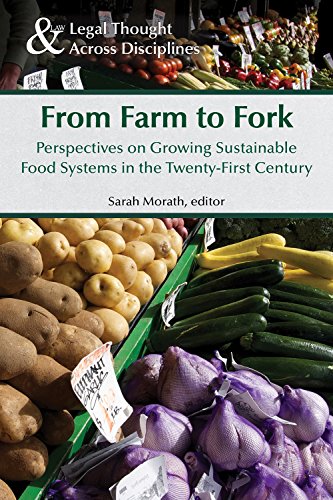

Most ebook files are in PDF format, so you can easily read them using various software such as Foxit Reader or directly on the Google Chrome browser.
Some ebook files are released by publishers in other formats such as .awz, .mobi, .epub, .fb2, etc. You may need to install specific software to read these formats on mobile/PC, such as Calibre.
Please read the tutorial at this link: https://ebookbell.com/faq
We offer FREE conversion to the popular formats you request; however, this may take some time. Therefore, right after payment, please email us, and we will try to provide the service as quickly as possible.
For some exceptional file formats or broken links (if any), please refrain from opening any disputes. Instead, email us first, and we will try to assist within a maximum of 6 hours.
EbookBell Team

5.0
80 reviewsInterest in the food we eat and how it is produced, distributed, and consumed has grown tremendously in the last few years. Consumers are exchanging highly processed, genetically engineered, chemical-laden, and pesticide-contaminated food often associated with big agribusinesses for fresh produce grown using organic methods. The growth of farmers markets from 1,755 in 1994 to over 7,500 today, in both urban and rural areas, is just one indication that consumers are interested in knowing who produced their food and how the food was produced.
This book addresses the importance of creating food systems that are sustainable by bringing together a number of experts in the fields of law, economics, nutrition, and social sciences, as well as farmers and advocates. These experts share their perspectives on some of the pressing issues related to sustainable food systems and offer solutions for achieving healthy, sustainable, and equitable food systems in the future.